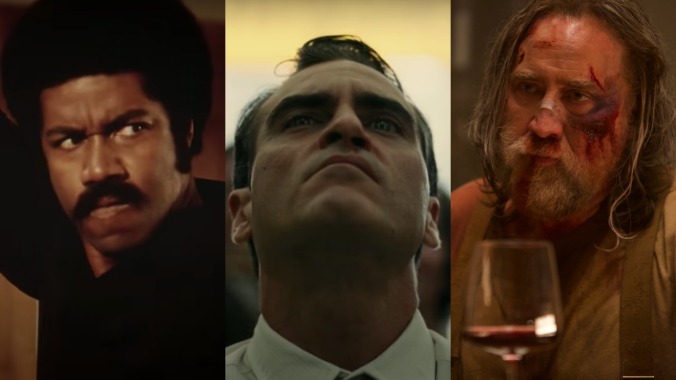The 11 best movies streaming on Hulu in November 2021
Featuring two cult classic comedies, an epic Western, game-changing sci-fi, and a thoughtful Nicolas Cage vehicle

November is something of a bridge month for the movies. It’s a way station not only between Halloween horror movies and Christmas feel-good fare, but also the beginning of the uphill climb towards awards season. Hulu’s new streaming offerings for the month are similarly eclectic, offering up a combination of cult-classic comedies and major works by celebrated filmmakers like Paul Thomas Anderson, Sergio Leone, Aaron Sorkin, the Wachowskis, and, uh, Michael Bay.
If you’re looking for something to watch with the family over a lazy Thanksgiving weekend, Tom Hanks has you covered with That Thing You Do!. Less family-friendly but more seasonal is Pig, an unusual combination of revenge thriller and food porn starring Nicolas Cage as a chef-turned-hermit in search of his beloved truffle swine.